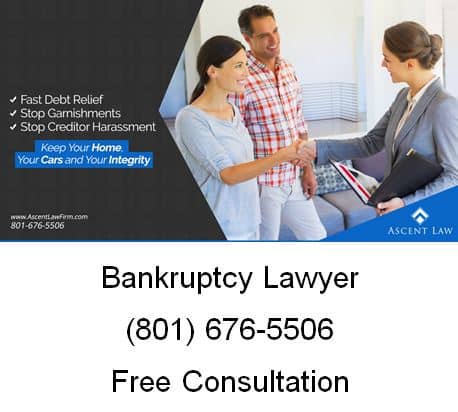As Utah Real Estate Lawyer, we get a lot of calls from clients who tell us that their real estate agent has recommended a short sale as an alternative to foreclosure. The selling point is that you will avoid a foreclosure on your credit report. Homeowners think this is a great option, but, while it sounds great, the reality isn’t as wonderful. A short sale can lead to a number of pitfalls, short sales are not necessarily better than the dreaded foreclosure. Some common short sale traps are outlined below.
Short Sales Cost Time and Money
(1) You don’t receive any money from a short sale, yet you have to keep your home in sale ready condition: in a short sale, your lenders are agreeing to take less than what is owed. This means that there is no equity in the home for you. When the sale is closed, you will receive no income whatsoever. Your real estate agent, in an effort to get the house sold, will probably ask you to spend some time and money throwing a fresh coat of paint on the walls, repair some items that are damaged, in one instance, a client of mine was asked to install a new furnace before the sale. These are all costs that you will not recover from the sale of the home.
You Might Still Owe the Bank After a Short Sale!
(2) You may still be obligated on the debt: when the lender agrees to a short sale, the lender is only agreeing to ‘release’ their lien on the property for less than what they are owed. It is very likely that the lender will ask you, the seller, to sign an unsecured note for the difference owed between what was received in the short sale v. what the value of the original promissory note was. This can leave you without a home and owing thousands of dollars to the mortgage lenders! This is particularly egregious because in many states, the first mortgage is considered to be a non-recourse mortgage. This means that when the home is foreclosed on, the senior mortgage lender does not have the right to come after the homeowner for any deficiency balance. This is the case in Washington State. Second mortgages do have a right to sue for any deficiency they may have in a foreclosure in Washington State. However, if you do a short sale, the mortgage company can essentially contract around this ‘non-recourse’ provision and make you liable for the money they didn’t recover from the sale. This is a terrible position to be in!
Short Sales Bring With Them Tax Liability for Debt Forgiveness
(3) You may owe taxes on the amount of forgiven debt from the short sale: although there is some recent federal law that may remove your tax obligations from a short sale, you should be cautious that the amount of the forgiven loan is not reported by your mortgage company as income to you. This would take place in the form of a 1099 tax form and you could be liable for taxes after the home has sold at short sale. Consult with a tax attorney in your jurisdiction to learn more about this.
Short Sales are Only Slightly Better on Your Credit than Foreclosure
(4) On your credit report, a short sale doesn’t look much better than a foreclosure. Both are big marks against you in the credit world. While a foreclosure looks slightly worse, with the time and effort you have to put in to keep you home in sale ready condition, the potential pitfalls of owing the balance of the mortgage anyway after the short sale, as well as the potential tax consequences, it might be worth it to simply let the home go into foreclosure and walk away. I spend a lot of time counseling debtors away from short sales. In the final analysis, they are the ones doing all the work and getting none of the benefit. It is easier to simply let the home go into foreclosure, file bankruptcy to deal with the debt and start over again from scratch. When your back is against the wall, sometimes you have to be able to see the forest through the trees. A short sale is not always what you real estate agent advertises it to be.
Free Initial Consultation with a Real Estate Lawyer
When you are faced with foreclosure, call Ascent Law for your free consultation (801) 676-5506. We want to help you.
8833 S. Redwood Road, Suite C
West Jordan, Utah
84088 United States
Telephone: (801) 676-5506
Recent Posts
Equal Rights for Fathers and Mothers
Source: http://www.ascentlawfirm.com/is-a-foreclosure-better-or-a-short-sale/











